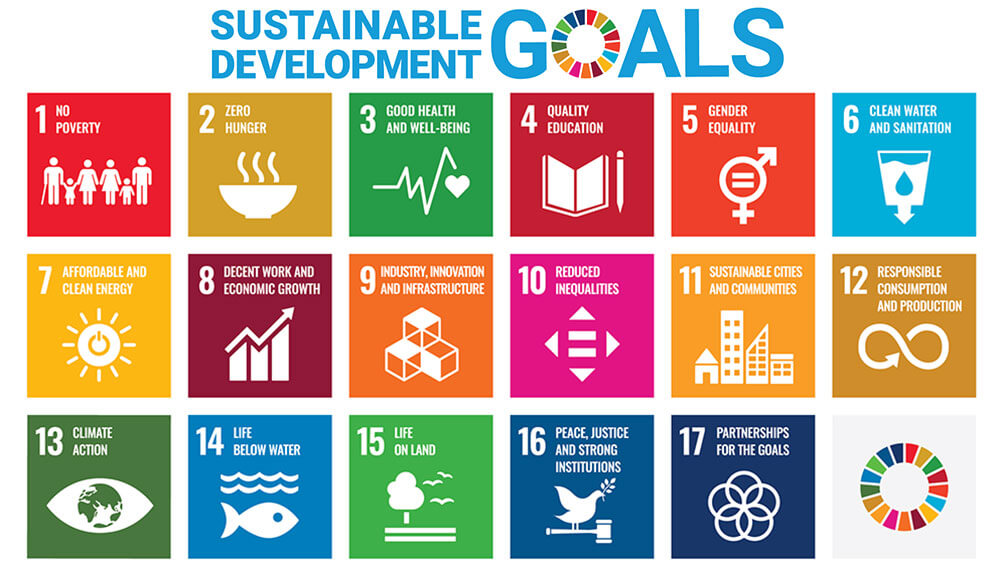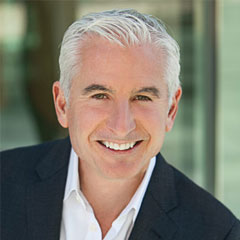
Event organizers can decide which of the United Nations’ 17 Sustainable Development Goals Decide which of those 17 goals are most within their reach to accomplish and aligned with the mission of their organizations. (Courtesy UN)
Editor’s note: Renowned anthropologist Dr. Jane Goodall has said of the climate crisis, “What you do makes a difference, and you have to decide what kind of difference you want to make.” With that in mind, we are dedicating the November/December edition of Convene fully — our first single-topic issue — to the climate crisis, and what the business events industry is doing to address this global challenge. Find stories from the Climate Issue here, and read our cover story, “A ‘Watershed Moment’ for Events — and the World.”

“Now is the time to raise the bar.” — Don Neal
You are a business event designer. Just as an architect designs a hospital, a school, an office building, or shopping mall, you design an environment for people to learn, do business, advance their careers, and build new relationships.
And as an event and experience designer, you have an opportunity to create an environment that is not only physically and emotionally transformative for your audience but also has an impact on the key areas of sustainability that are aligned with your organization’s mission, member imperatives, and ESG (environmental, social, and governance) objectives.
How, you ask? You can start on what seems like an overwhelming task by reviewing the United Nations Sustainable Development Goals. Decide which of those 17 goals are most within your reach to accomplish and aligned with the mission of your organization.
For example, the Institute of Food Technologists (IFT), recently focused on Sustainable Goal No. 2, zero hunger, as a key element of its 2021 event, held July 19-23. The newly branded event, FIRST – Food Improved by Research, Science, and Technology, was held virtually July 19-23, featuring well-known speakers, programming, and action planning in service of this mission-critical objective to mitigate the impact of hunger and food insecurity around the world.
Here are three other UN Sustainable Development Goals to consider baking into your event.
Goal No. 1 — to end poverty in all its forms, everywhere. Event organizers for years have been leaving the communities where they host events better than they found them. Now is the time to raise the bar. Here are three ideas to consider: 1) Ask your audience to skip one meal over the course of your event and donate what they would have spent on that meal to support the local food bank. 2) Work with the local school closest to your event venue and the Wal-Mart or Target to pack 500 backpacks with healthy snacks for a month. 3) Have a “can sculptor” create a series of food can sculptures related to your industry. Invite media to cover the exhibit and donate all of the cans to a local nonprofit to distribute to those in need.
Goal No. 13— take urgent action to combat climate change and its impacts. Start by calculating the carbon footprint of your event and getting a full accounting of the impact on our planet resulting from air travel, electricity, waste, and ground transportation, and offset that by buying carbon credits. There are many companies and nonprofits that deal in carbon offsets — look for certifications by auditors or standards groups like The Gold Standard or Green-e. Add the cost of the carbon credits to your registration fee and let your audience know that they are supporting this important climate effort with their commitment to offset the costs of their participation. And don’t forget to ask your sponsors and exhibitors to contribute to this fund.
Goal No. 8 — promote sustained, inclusive and sustainable economic growth, full and productive employment and decent work for all. Offer a one-day pass to local community colleges and other appropriate local institutions for their students to attend your event. Allow them to experience the educational sessions, visit the trade show, and hear from a well-known keynote speaker. Imagine the impression you can make on a young person who has never been to a big industry event. It may be the first time they’ve ever been in a professional setting. It may ignite a desire to work in your industry or profession. Treat them as special guests and perhaps offer them an annual membership in your organization. Who knows what decent work and economic development may come as a result for them and for your members?
Start small and think big. Pick one of the above initiatives, plan and execute well, learn what works and doesn’t — and don’t stop there. Take what you’ve learned and approach the leadership of your organization. Work to expand the commitment to the goal most aligned with the interests and ability of your organization and scale it beyond your event. Events are petri dishes for experimentation and testing. Be the innovator for your organization to become the sustainable leader your members, industry, and community needs.
Don Neal is founder and CEO of marketing, strategy, and experience agency 360 Live Media.
